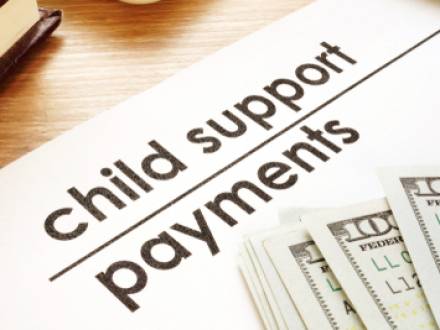Recent Blog Posts
When Should You Start Thinking About Divorce?
 It is normal for married couples to go through a rough patch, but at what point does a rough patch become an unhappy marriage? The threshold is different for everyone, and it can be difficult to determine when a marriage is no longer worth continuing. However, there are certain signs that could indicate that a divorce is on the horizon.
It is normal for married couples to go through a rough patch, but at what point does a rough patch become an unhappy marriage? The threshold is different for everyone, and it can be difficult to determine when a marriage is no longer worth continuing. However, there are certain signs that could indicate that a divorce is on the horizon.
At Weiler & Associates, P.C., our St. Charles, IL family law attorneys can provide you with skilled advocacy and guidance if you decide that your marriage is no longer working out. Attorney Tim Weiler has experience handling complex divorce issues, so do not hesitate to reach out for a consultation if you want a clear idea of what to expect from the dissolution of your marriage.
Three Warning Signs for Divorce in Illinois
Drifting Apart From Your Spouse
Over time, the spark that once animated a marriage may flicker out. You may grow tired of each other’s company. You may start to daydream about living on your own. You may even begin to resent your spouse. In some cases, you may not even notice the emerging rift between you and your longtime spouse.
Contested Issues in High Asset Divorces
 High asset divorces often involve a large, complex marital estate that must be divided between the spouses. This can be a major source of conflict, leading to a contested divorce that could take months or possibly years to resolve. To navigate the process as efficiently as possible while safeguarding your interests, consider working with a St. Charles, IL divorce lawyer at Weiler & Associates, P.C.. Attorney Tim Weiler is a Certified Financial Litigator who is uniquely qualified to advocate for you in the most complex aspects of your high net worth divorce.
High asset divorces often involve a large, complex marital estate that must be divided between the spouses. This can be a major source of conflict, leading to a contested divorce that could take months or possibly years to resolve. To navigate the process as efficiently as possible while safeguarding your interests, consider working with a St. Charles, IL divorce lawyer at Weiler & Associates, P.C.. Attorney Tim Weiler is a Certified Financial Litigator who is uniquely qualified to advocate for you in the most complex aspects of your high net worth divorce.
Disputes About Businesses in High Net Worth Divorces
If you own a business, a significant portion of your income may come from your daily operations. In a divorce, your business could be threatened if your spouse has a claim to it as marital property.
The boundaries between marital and separate property can be murky at times. If you established the business prior to the marriage, at least some of it may be assumed to be separate property. However, if the business increased in value over the course of your marriage due to marital contributions, your spouse could be entitled to that increase in value. Furthermore, if your spouse is a business partner, it may not be as easy to buy out his or her interests in the company.
Understanding Illinois’ Laws Against Dissipation
 When your marriage begins to break down, you and your spouse may become distant from each other. During this period of estrangement, you should be careful to protect yourself against dissipation. If you believe that your spouse has committed dissipation by misappropriating marital funds, consider working with a Kane County, IL family law attorney.
When your marriage begins to break down, you and your spouse may become distant from each other. During this period of estrangement, you should be careful to protect yourself against dissipation. If you believe that your spouse has committed dissipation by misappropriating marital funds, consider working with a Kane County, IL family law attorney.
If you have lost marital assets due to dissipation, you may be able to receive compensation for the among lost in your divorce. At Weiler & Associates, P.C., we can help you identify dissipation in your divorce and take legal action to recover lost assets.
What Counts as Marital Dissipation in Illinois?
Dissipation can take many forms, such as:
-
Spending money on a partner in an affair, often through expensive dates and gifts
Addressing Important Concerns in Parenting Time Decisions
 Child custody adds a layer of complexity to a divorce that can completely stall legal proceedings. But even if things are tense between you and your co-parent, unless you totally rely on a judge to make custody decisions for you, you will still have to work together to divide up parenting time. This is not easy, but you do not have to figure out a long-term solution for parenting time and parental responsibilities on your own. A St. Charles, IL child custody attorney at our firm can help you find a viable solution.
Child custody adds a layer of complexity to a divorce that can completely stall legal proceedings. But even if things are tense between you and your co-parent, unless you totally rely on a judge to make custody decisions for you, you will still have to work together to divide up parenting time. This is not easy, but you do not have to figure out a long-term solution for parenting time and parental responsibilities on your own. A St. Charles, IL child custody attorney at our firm can help you find a viable solution.
Since our firm was established in 2005, Weiler & Associates, P.C. has helped clients with difficult family law issues. We can help you address the logistical and emotional questions of splitting up custody, advocating for your parental rights while protecting your child’s best interests. Here are some things to think about as you consider the options for custody arrangements.
Three Important Reasons to Establish Paternity in Illinois
 When a child is born to married parents, establishing paternity is fairly straightforward; the man is assumed to be the father. Otherwise, the father can sign a document acknowledging himself as the father. But if paternity is not established, it can have serious ramifications for the mother, father, and the child. A St. Charles, IL family law attorney can represent you in concerns about parentage, advocating for your rights in court.
When a child is born to married parents, establishing paternity is fairly straightforward; the man is assumed to be the father. Otherwise, the father can sign a document acknowledging himself as the father. But if paternity is not established, it can have serious ramifications for the mother, father, and the child. A St. Charles, IL family law attorney can represent you in concerns about parentage, advocating for your rights in court.
At Weiler & Associates, P.C., we know how important legal parentage is. We represent parents in paternity actions regarding custody rights, establishing child support, and other important matters.
Paternity Gives You the Right to Seek Custody
In Illinois, you cannot seek custody rights to your child if you are not the legal parent. This can put you at a serious disadvantage if you want to play an active role in your child’s life, as the court will not recognize your rights without paternity. Parenting rights can include the right to parenting time as well as decision-making responsibility.
Three Things to Think About Before Filing for Divorce
 Regardless of whether this is your first marriage or you have been divorced before, getting a divorce is never easy. If you have already made up your mind about ending your marriage, you may be ready to file and initiate the process. However, before you begin the process, you should think hard about your intentions and your goals.
Regardless of whether this is your first marriage or you have been divorced before, getting a divorce is never easy. If you have already made up your mind about ending your marriage, you may be ready to file and initiate the process. However, before you begin the process, you should think hard about your intentions and your goals.
Having a clear plan in mind can help to make your divorce more orderly and less time-consuming, and therefore less expensive. A St. Charles, IL family law attorney can provide you with valuable insights to protect your rights before, during, and after your divorce. At Weiler & Associates, P.C., we have experience handling all kinds of divorces, from simple uncontested divorces to litigated divorces involving complex financial matters. Our lawyers can assist you at the planning stage of your divorce to facilitate a smooth end to your marriage.
Should I Settle or Go to Court?
A divorce can either be resolved through litigation or by reaching a settlement with your spouse. While getting a settlement is usually the more "amicable" option, there are situations where litigation may be called for. If you anticipate that your spouse will try to sabotage negotiations or waste your time, you may want to prepare to go to court.
When Outside Professionals Get Involved in a Divorce
 The average divorce involves many moving parts. Even the simplest, most amicable divorce may still require thorough fact-finding to resolve. In some cases, it may even be necessary to involve an outside professional with specialized knowledge. During a complex divorce, an Illinois family law attorney can help you work with these outside professionals to protect your best interests.
The average divorce involves many moving parts. Even the simplest, most amicable divorce may still require thorough fact-finding to resolve. In some cases, it may even be necessary to involve an outside professional with specialized knowledge. During a complex divorce, an Illinois family law attorney can help you work with these outside professionals to protect your best interests.
At Weiler & Associates, P.C., we have experience handling intricate, complicated divorces. When you work with our firm, we will provide you with aggressive representation and clear legal advice while working with outside professionals. We will keep you informed throughout your case, advising you of your best options from start to finish.
Guardian ad Litems in Child Custody Cases
In child custody cases involving divorcing parents, the court will always do what is right for the child. Oftentimes, parents are able to settle disagreements on their own and reach an amicable resolution for parenting time and decision-making responsibility.
Child Support Calculations for High Net Worth Parents
 When one or both parents of minor children have substantial wealth, child support can be much more complicated than cases involving more typical incomes. High net worth parents in Illinois must still provide financial support for their children, but standard guidelines may not apply in the same way. The court may deviate from its normal guidelines if they do not reflect the child’s actual needs or the family’s standard of living.
When one or both parents of minor children have substantial wealth, child support can be much more complicated than cases involving more typical incomes. High net worth parents in Illinois must still provide financial support for their children, but standard guidelines may not apply in the same way. The court may deviate from its normal guidelines if they do not reflect the child’s actual needs or the family’s standard of living.
If you are a high-earning parent going through a divorce or child support proceeding in Kane County, understanding how child support is determined is essential. As of June 2025, Illinois still uses an "income shares" model for most families, but courts apply more discretion when income reaches the upper tier. An experienced St. Charles, IL child support lawyer can explain more about how this might apply to your family.
Can You Be Ordered to Use Your Retirement Savings to Pay a Divorce Settlement?
 In a divorce, retirement savings are often one of the most valuable assets on the table. Many spouses assume these funds are untouchable until retirement or that they can only be divided through a standard Qualified Domestic Relations Order (QDRO). However, Illinois courts have broad authority under the Illinois Marriage and Dissolution of Marriage Act to divide all marital assets equitably, and in some cases, a judge may order one spouse to use retirement savings to satisfy a divorce settlement.
In a divorce, retirement savings are often one of the most valuable assets on the table. Many spouses assume these funds are untouchable until retirement or that they can only be divided through a standard Qualified Domestic Relations Order (QDRO). However, Illinois courts have broad authority under the Illinois Marriage and Dissolution of Marriage Act to divide all marital assets equitably, and in some cases, a judge may order one spouse to use retirement savings to satisfy a divorce settlement.
This can come as a shock, especially when it might mean early withdrawals, tax penalties, or a loss in long-term financial security. For anyone going through a divorce, especially where other assets are limited or there is a lot of financial complexity, it is essential to understand how the court views retirement accounts and when they may be used to equalize a settlement. Our Kane County, IL divorce attorneys are here to help.
Should You File For Divorce and Bankruptcy Together?
 When high-net-worth couples face both relationship and financial distress, they must make strategic decisions about how and when to file for bankruptcy. As of June 2025, Illinois law allows spouses to file bankruptcy jointly if they are married at the time of filing. But filing together is not always the best path, especially in divorces involving complex asset portfolios, property valuations, and long-term tax considerations.
When high-net-worth couples face both relationship and financial distress, they must make strategic decisions about how and when to file for bankruptcy. As of June 2025, Illinois law allows spouses to file bankruptcy jointly if they are married at the time of filing. But filing together is not always the best path, especially in divorces involving complex asset portfolios, property valuations, and long-term tax considerations.
In Kane County, couples navigating divorce and bankruptcy at the same time should consult with an Illinois divorce attorney who understands how these two legal processes work together and how timing can impact the outcome of both.
Can You File for Bankruptcy Jointly During Divorce?
In Illinois, married couples can file for bankruptcy together under either Chapter 7 or Chapter 13. Once a divorce is final, however, joint filing is no longer an option. This creates a narrow window during which both spouses can use bankruptcy to eliminate unsecured debts and simplify the divorce.






 630-331-9110
630-331-9110
 630-587-5680
630-587-5680 2210 Dean Street, Suite K
2210 Dean Street, Suite K



